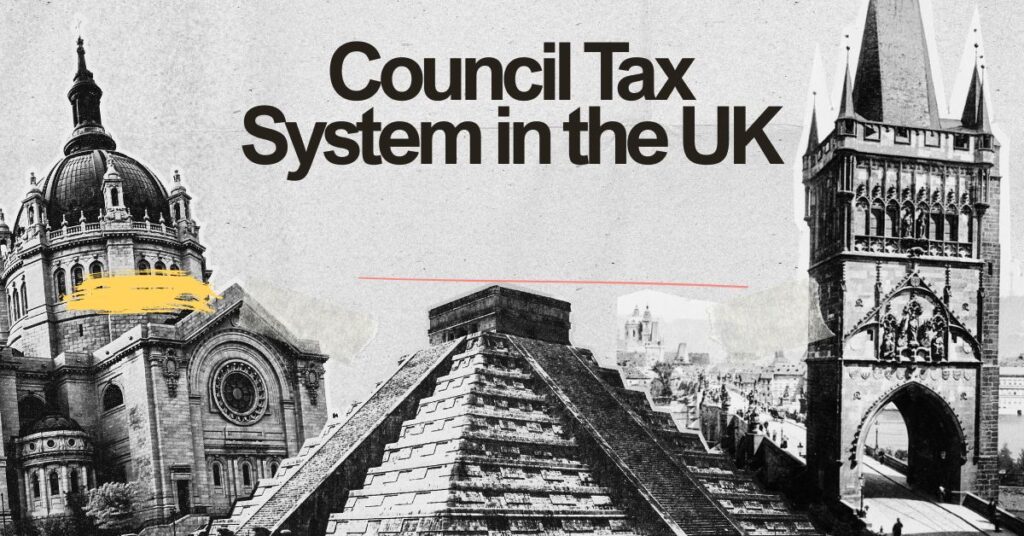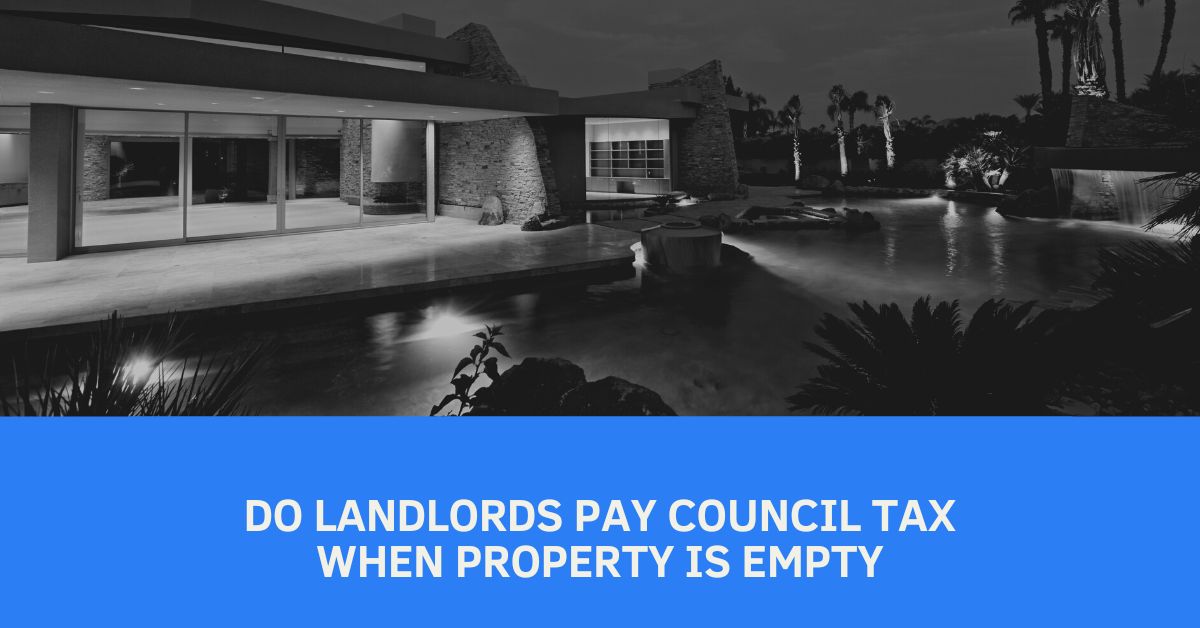Do landlords pay council tax when property is empty? It’s a common question, especially if you’re a landlord or an owner of a residential property facing times where the property is vacant—maybe you’re in between tenancies, decorating, or even renovating. I remember selling one of my properties, and currently, it sits empty while I deal with paperwork delays. One common question people keep asking is whether they still have to pay council tax on such properties. And the answer is—it depends. The UK government, through its rules and regulations, leaves a lot up to the local council.
Each local council has the discretion to decide policies and exemptions based on different factors like status, duration, and why the home is unoccupied. Most landlords are liable to pay the tax even when their property is not in use. However, some councils offer exemptions or discounts, especially if the reason is valid—like active renovating, lack of suitable tenants, or delay finding new renters. I’d recommend checking with your local council to explain yourself clearly and see if you’re eligible. The article or notice you receive from the council will usually list what’s included. Do make sure you understand every part of it—as the rules can differ wildly depending on where you are in the UK.
What is Council Tax?

Understanding the Council Tax System in the UK
Council tax is a local taxation system in the United Kingdom designed to fund public services like rubbish collection, street lighting, and local schools. It is levied on domestic properties—houses, flats, and other residential buildings. Council tax is collected by local councils and helps pay for essential services, including education, police, fire, and social care, at least partially. If you live in Northern Ireland, you don’t pay council tax—you pay rates instead. It’s worth recapping how this system works, especially if you’re new to the UK.
The amount of council tax payable depends on your property’s valuation band, which is assigned based on the value of the property as of 1st April 1991 in England and Scotland, and 1st April 2003 in Wales. There are eight bands, from A (lowest) to H (highest). While almost every property is subject to council tax, there are cases—especially with unoccupied or commercial properties—where discounts or exemptions may apply. These are different from business rates, which are a separate form of taxation we’ll look at later in this article.
You might also like: What Is Road Tax Really Used For? Revealed
Types of Empty Properties You Should Know About
Before deciding whether you need to pay council tax on an empty property, it’s essential to understand the different categories such properties can fall into. Over the years, I’ve come across many homes that remained empty for one reason or another—and how the council treats them often depends on their type and status.
Here are the main categories of empty properties:
- Empty but furnished: These are properties that still contain furniture, often used as second homes or those waiting for sale or rent.
- Empty and unfurnished: Properties with no furniture, usually in between tenants or undergoing renovation.
- Long-term empty properties: Homes that have been unoccupied for an extended period, typically over two years.
Whether a property qualifies for any relief or discount will depend on the local council’s rules and how they define each case.
Do Landlords Pay Council Tax on an Empty Property?
Yes, a landlord must generally pay council tax when a residential property is empty. While the responsibility normally falls on residents during occupancy, once the lease ends or the property becomes vacant, the landlord becomes responsible again. I’ve had to deal with this personally—right after my last tenant moved out, the full council tax bill landed in my inbox without warning. Whether it’s furnished or unfurnished can make a big difference.
Some local authorities may offer a relief, exemption, or even a discount depending on how long the property remains vacant. For instance, Chelmsford City Council may offer a discount for up to three months, while Colchester City Council allows a 28-day full exemption for unfurnished homes. But keep in mind—if the property is furnished, especially if it’s a second home or holiday home, you’ll likely have to pay in full. I’ve seen this happen with clients who assumed a short vacancy would shield them from charges.
In recent years, penalties have become severe, especially in England and Wales. Some councils are doubling or even tripling the council tax premiums on long-term empty properties. For example, Colchester City Council has proposed a 100% premium on second homes used as holiday accommodation, starting April 2024. This premium applies whether the property is empty or occupied. It’s important to read up on your local council’s policy, as rules vary across the UK, and getting clued up now could save you a lot later.
Council Tax Exemptions Explained
When a property is vacant, many assume they still need to pay council tax, but that’s not always the case. Some exemptions exist depending on specific circumstances. If your property is undergoing repairs, refurbishment, or structural alterations, your local council may offer a discount, sometimes even a 100% exemption for up to 12 months. I’ve had a rental house where ongoing work qualified me for this—though it depended heavily on the local authority’s policies and how willing they were to assess the damage. Properties that are uninhabitable due to fire, flooding, or electricity malfunctions can also be exempt if you can prove it’s unfit for occupancy.
There are other less obvious cases where council tax relief applies. If the owner recently died, and the property is awaiting probate, it will be exempt until probate is granted—and sometimes an additional six-month exemption applies. I’ve seen cases where a second home left furnished but unoccupied still gets a discount, usually between 10% and 50%, depending on the local authority. You may also qualify for exemption if you’ve moved into a care home, the property has been repossessed, or even if you’re in prison—though not if it’s due to a council tax fine. There are even cases where it’s illegal to live in the property, such as when it’s been bought by compulsory purchase or declared derelict. In most of these scenarios, a completion notice will let you know the date when the tax must be paid.
Do Landlords Pay Business Rates on Empty Properties?
If you’re a commercial landlord, your property is typically subject to business rates. When a tenant is occupying the space, they’re the ones who normally pay. But once it becomes empty, the landlord becomes liable to pay them. Thankfully, commercial properties qualify for empty property relief, which gives you three months of exemption from the levy starting from the date the property becomes empty. After that time, you’ll need to pay in full. In my case, this short window of relief helped cover costs while I prepared for a new lease.
There are some instances where you can get extended empty property relief. Industrial premises qualify for an additional three months, while listed buildings and properties owned by charities are eligible for full relief until they’re reoccupied, especially if the next use is charitable. Community amateur sports club buildings also benefit if their next use is for a sports club. If your property is only partly empty, your local authority may still offer business rates relief for the empty portion. These rates can vary based on rateable value, such as buildings under £2,900 in value. If you’re unsure, contact your authority to check if you meet the criteria.
Conclusion
While most empty properties incur council tax, knowing about exemptions and discounts can help reduce the financial burden. I always check with the local council to make sure I have the most accurate and up-to-date information, as rules and rates vary across the UK. By staying informed, you can manage your unoccupied property’s council tax more effectively, ensuring you meet your obligations without paying more than necessary. For example, if a property is unfurnished and empty, you may get a short period—usually 28 days—during which you don’t pay council tax. But if it’s been empty for two years or more, you might have to pay several times the normal rate.
If you own an empty but furnished property, you’ll still need to pay council tax. In fact, in many areas, second homes and holiday lets come with a significant council tax surcharge. These surcharges are becoming common in more parts of the UK. If you’re a commercial landlord, you can qualify for three months’ business rates relief for empty properties. But with few exceptions, you’ll need to pay business rates again until you find another occupier. This is something I often advise new property owners about—it can be a major factor when budgeting for vacancies.
FAQs
1. Do landlords pay council tax when the property is empty?
Yes, landlords usually have to pay council tax on an empty property, especially when it’s not occupied by tenants. However, some local councils may offer discounts or exemptions depending on the situation.
2. How long can a property be empty before paying council tax?
Most councils allow a 28-day exemption for unfurnished empty homes, and in some cases, up to three months for certain councils. After that period, full council tax usually applies.
3. Are there any council tax exemptions for uninhabitable properties?
Yes, council tax exemptions may apply if the property is undergoing renovation, refurbishment, or is unfit for occupancy due to damage from fire, flooding, or electrical issues.
4. What is considered a long-term empty property in the UK?
A long-term empty home is typically defined as a property that has been vacant for more than two years. These properties may incur higher council tax premiums.
5. Can landlords get a council tax discount on second homes?
Discounts are rare for second homes or holiday lets, especially if the property is furnished. Some councils charge a council tax surcharge, often up to 100% extra.
6. Who is responsible for paying council tax – landlord or tenant?
During active tenancy, the tenant pays council tax. When the property is empty, landlords are responsible unless an exemption or relief applies.
7. Do commercial landlords pay business rates on empty properties?
Yes, commercial landlords pay business rates when a commercial property is empty. However, they can get empty property relief for the first three months.
8. What is empty property relief for business rates?
Empty property relief allows commercial landlords to avoid paying business rates for up to three months after the building becomes vacant. Some properties may get extended relief.
9. Are there council tax penalties for long-term empty homes?
Yes, some councils double or triple council tax on long-term vacant homes as a premium penalty, especially in areas like England and Wales.
10. How can I apply for a council tax exemption as a landlord?
You need to contact your local council, explain your situation (e.g., renovation, probate, care home), and submit proof. They will guide you on any discounts or exemptions available.


1 thought on “Do Landlords Pay Council Tax on Empty Homes? Exposed”